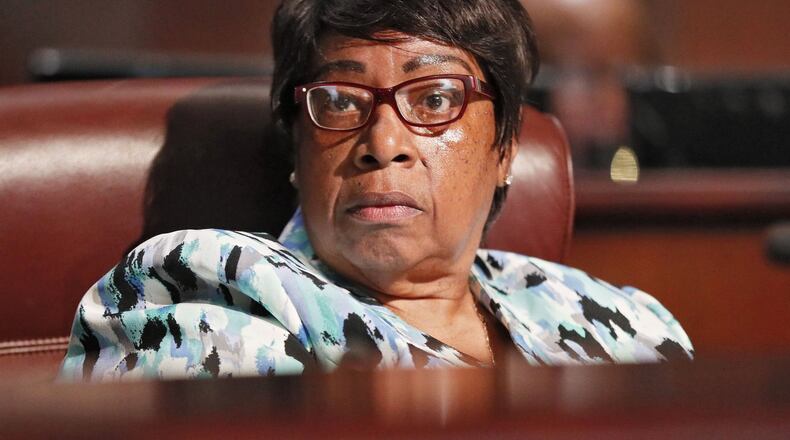A housing crisis that may leave some 250 people living with AIDS and HIV homeless is the result of problems that have festered at the city of Atlanta for a decade, concerned council members acknowledged at a public meeting Thursday.
The city has paid several nonprofits that house these patients as late as eight months behind schedule, forcing its largest contractors to float hundreds of thousands of dollars in debt to pay rent for their clients. A decade of inconsistent city management and federal restrictions on how the subsidies are spent have made it difficult to fix the current crisis and other related problems, service providers said.
“This has been a long-term issue, and this (problem) has been a cumulative effect,” said Council Member Antonio Brown, who will run a task force to address the crisis.
Equality Georgia, which advocates for the LGBTQ community, has lost confidence in the city’s ability to manage the crisis, said Deputy Director Eric Paulk. Administrators with the city’s Office of Grants Management, which oversees funds for the federal Housing Opportunities for Persons With AIDS program, failed to show a sense of urgency, he said.
“We are talking about lives. We are not talking about widgets. We are talking about real people,” Paulk said.
Meanwhile, city administrators have yet to come up with a formal plan to house 250 clients of Atlanta-based Living Room, who face eviction because the nonprofit failed to pay its portion of their subsidized rents. Its executive director said it can’t because the city has withheld months of funding over what he thinks is retaliation for proposing an overhaul of city grants management. The city complained in a March audit that the Living Room did shoddy work.
Many of the Living Room’s clients are too sick to work and have no place to go. Next month’s rent is due in early July.
“Another flood of evictions is going to come,” warned Stefanie Sparks, an attorney with Atlanta Legal Aid Society. “As patient as these landlords are trying to be, they are businesses.”
The city administers $23 million in federal Housing Opportunities for Persons With AIDS (HOPWA) funds for 29 counties in the Atlanta area. The program subsidizes a percentage of clients’ rent based on their incomes. Clients who receive the subsidy rent apartments or houses across the region.
Only $1.9 million of those funds, which were allocated during the 2018 federal fiscal year, have been spent so far. Nonprofits said the city’s late payments place their finances at risk.
“We don’t want any of the agencies to fail,” said Council Member Natalyn Archibong, chair of the Community Development/Human Services committee that held Thursday’s meeting.
There are few good options to solve the current crisis and find temporary housing for HOPWA clients who could be evicted, service providers said. Only one area nonprofit — Positive Impact Health Centers — currently provides specialized emergency housing for HOPWA clients. It has space for about a quarter of those whose homes are at risk, its housing director Rasheeda Jordan said.
“We can’t meet the need of the Living Room crisis,” Jordan said. The city owes Positive Impact money, too, and its board has set a $500,000 limit to the amount of debt it can take on to continue to provide services.
Other nonprofits could house them, but they lack funding, Jordan said. Some proposed solutions are against U.S. Department of Housing and Urban Development rules governing how HOPWA funds are spent.
Differences in local and federal funding cycles, a staffing shortage, and changes in federal rules caused the years of chronic payment delays, Karen Carter, deputy director for grants management told council members. It may take several months to create and and approve a plan to fix them.
Administrators are taking “extreme measures” to work with Legal Aid and other groups to make sure that clients remain in their homes, Carter said, but she gave no specifics about how many have been assisted.
Legal Aid has informed the city of about four dozen of its clients who need help, but has yet to learn if any of them will be able to stay in their homes, Sparks said.
All late payments are being processed in a timely fashion, said Carter. It recently processed $500,000 for Positive Impact Health Centers, she added.
Only $200,000 of those funds had been received as of early Thursday afternoon, said Larry Lehman, Positive Impact’s CEO and president.
About the Author
Keep Reading
The Latest
Featured



